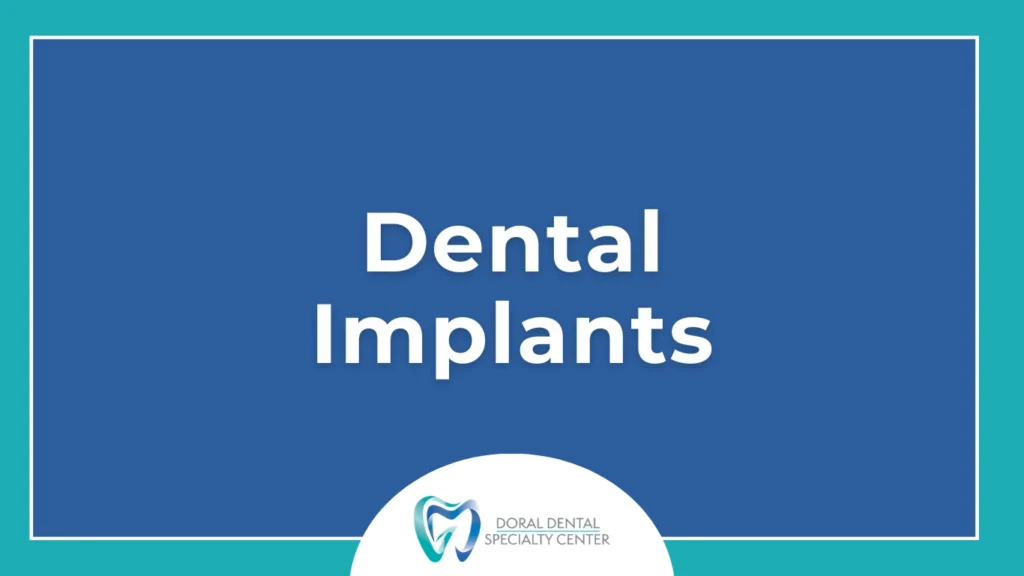Who Are the Ideal Candidates for Dental Implants? in Doral, FL

What Are Dental Implants?
The Benefits of Dental Implants
1. Durability and Longevity:
Dental implants are designed to last a lifetime with proper care. Unlike traditional dentures or bridges, which may need replacement every 5-10 years, implants provide a permanent solution.
2. Improved Oral Health:
Implants help preserve natural tooth tissue by avoiding the need to cut down adjacent teeth for conventional bridgework. They also reduce bone resorption and deterioration that results in loss of jawbone height.
3. Enhanced Functionality:
Dental implants function like natural teeth, allowing you to eat, speak, and smile with confidence. They eliminate the discomfort and inconvenience of removable dentures.
4. Aesthetic Appeal:
Implants provide a natural look and feel, enhancing the overall appearance of your smile. They help maintain the natural contour of your face, preventing the sunken appearance often associated with tooth loss.
5. Convenience:
Unlike dentures, which require special cleaning and adhesives, implants can be cared for with regular brushing and flossing. This makes them a more convenient and less cumbersome option.
6. Bone Preservation:
One of the most significant advantages of implants is their ability to stimulate bone growth and prevent bone loss. This is crucial for maintaining the structural integrity of your jaw and face.
7. Speech Improvement:
Dentures can sometimes slip and cause mumbling or slurred speech. Implants allow you to speak without the worry that teeth might slip.
8. Comfort and Fit:
Custom-made to fit your mouth, implants eliminate the discomfort of ill-fitting dentures. They become a permanent part of your mouth, providing comfort and stability.
9. Improved Self-Esteem:
With a restored smile, many patients experience a boost in self-confidence. Implants help you feel better about your appearance, positively impacting your overall well-being.
10. Diet and Nutrition:
With dental implants, you can enjoy a wider variety of foods, contributing to better nutrition and overall health.
Who Are Candidates for Dental Implants?
1. Good Oral Health:
Candidates should have healthy gums and adequate bone to support the implant. Those with gum disease or significant bone loss may require additional treatments, such as bone grafts, before implant placement.
2. Overall Health:
General health conditions, such as diabetes or heart disease, need to be well-controlled. Smoking can also affect the healing process and success of the implants, so non-smokers are preferred candidates.
3. Commitment to Oral Hygiene:
Maintaining excellent oral hygiene is crucial for the long-term success of dental implants. Regular dental visits and good home care practices are essential.
4. Jawbone Density:
Sufficient bone density in the jaw is necessary to support the implant. In cases of bone loss, bone grafting procedures can be performed to enhance the implant site.
5. Non-Smokers:
Smoking can impede the healing process and negatively impact the success rate of implants. Smokers need to quit smoking before undergoing the procedure.
6. Realistic Expectations:
Understanding the procedure, recovery time, and the necessity of regular maintenance is important. Patients should have realistic expectations regarding the outcomes of dental implants.

